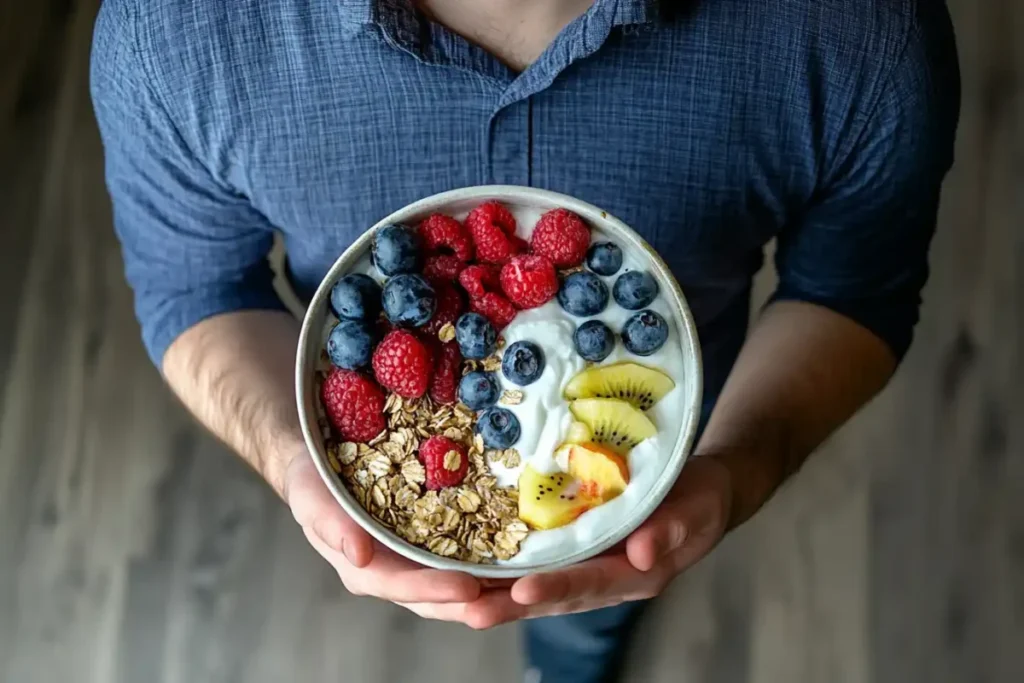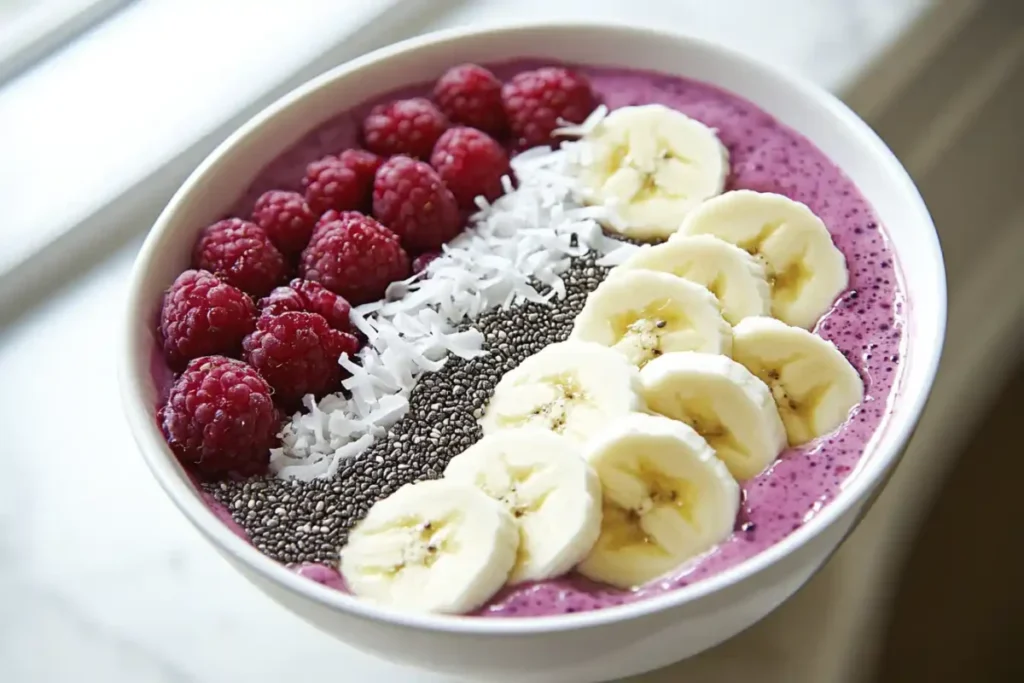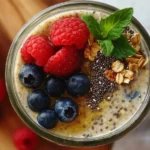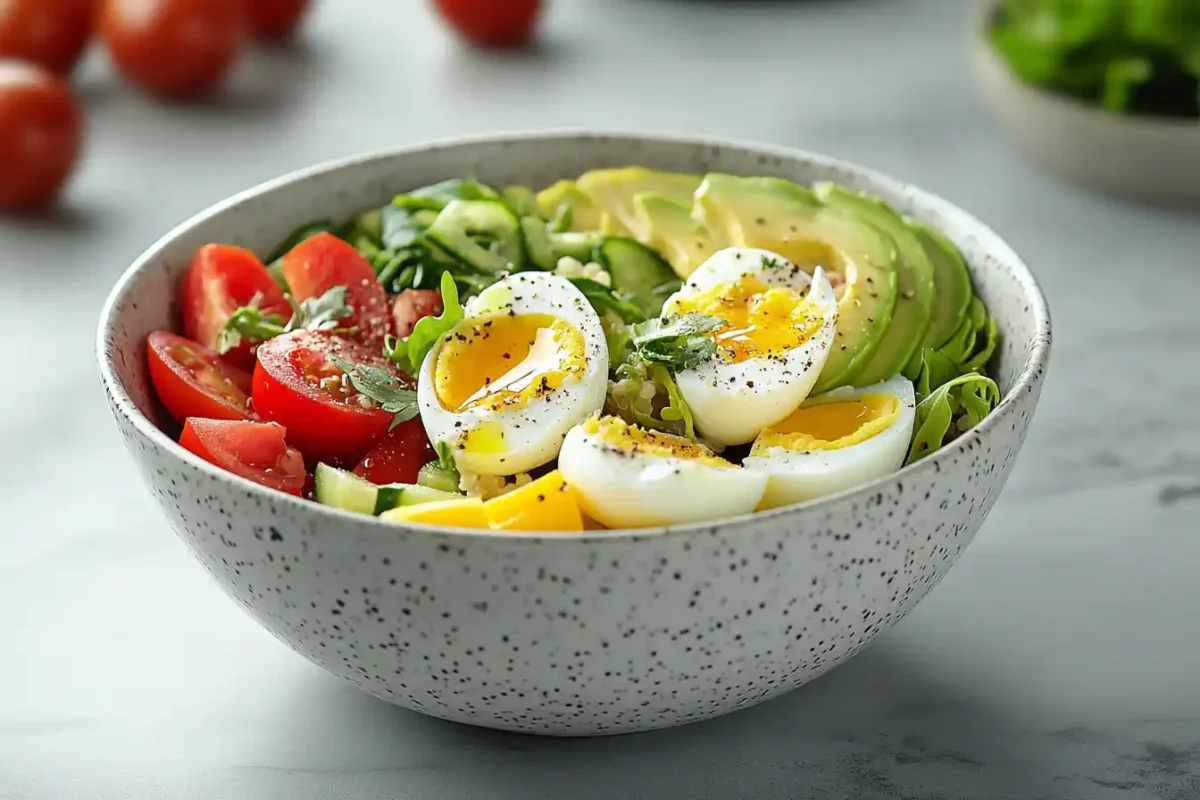Start your mornings right with breakfast bowls. Discover why are breakfast bowls good for you, their benefits, and tasty recipes.
Understanding Breakfast Bowls
Breakfast bowls have surged in popularity as a versatile and nutritious way to start the day. They offer a customizable meal option that can cater to various dietary needs and preferences, making them a staple for many health enthusiasts and busy individuals alike.
Are Breakfast Bowls Good for You? An Introduction
The question, are breakfast bowls good for you? often arises among those seeking healthy and convenient meal options. The answer is affirmative when the bowls are crafted with wholesome ingredients, ensuring a balanced intake of essential nutrients.
The Nutritional Advantages of Breakfast Bowls
Breakfast bowls can be nutritional powerhouses, providing a well-rounded mix of vitamins, minerals, and macronutrients necessary for a productive day.
High Protein and Fiber Content
One of the primary reasons breakfast bowls are good for you is their high protein and fiber content. These nutrients are crucial for maintaining satiety, reducing mid-morning hunger pangs, and supporting muscle health. Protein aids in muscle repair and growth, while fiber promotes healthy digestion and prolonged energy release.
Abundance of Vitamins and Minerals

Breakfast bowls are typically loaded with a variety of fruits, vegetables, nuts, and seeds, each contributing different vitamins and minerals. For example, adding kale or spinach introduces iron and calcium, while berries provide antioxidants and vitamin C. This diverse nutrient profile supports overall health and boosts the immune system.
Balanced Macronutrient Distribution
A well-balanced breakfast bowl ensures an optimal mix of carbohydrates, proteins, and healthy fats. This balance is essential for maintaining steady blood sugar levels, preventing energy crashes, and promoting sustained mental and physical performance throughout the morning.
Varieties of Breakfast Bowls
There are numerous types of breakfast bowls, each catering to different tastes and nutritional requirements. Understanding these variations can help you choose the one that best fits your lifestyle.
Smoothie Bowls

Smoothie bowls are a favorite for those who enjoy a sweet and creamy breakfast. They typically consist of blended fruits and vegetables, often with a base of yogurt or plant-based milk. Toppings like granola, nuts, and fresh fruit add texture and additional nutrients.
Grain-Based Bowls
Grain bowls incorporate various grains such as quinoa, oats, or brown rice as the foundation. These grains are combined with vegetables, proteins, and flavorful dressings, offering a hearty and satisfying meal that can be tailored to individual preferences.
Protein-Packed Bowls
For those focused on muscle building and repair, protein bowls are ideal. These bowls emphasize high-protein ingredients like eggs, tofu, legumes, and lean meats, providing the necessary fuel for an active lifestyle.
Are Breakfast Bowls Good for You? Factors to Consider
While breakfast bowls are generally healthy, it’s essential to consider portion sizes and ingredient choices. Opting for whole, minimally processed foods and avoiding excessive sugars or unhealthy fats will ensure that your breakfast bowl remains a nutritious and beneficial meal option.
Crafting a Healthy Breakfast Bowl
Creating a nutritious breakfast bowl involves selecting the right combination of ingredients to meet your dietary goals and taste preferences.
Choosing the Right Base
The base of your breakfast bowl should provide a solid foundation of carbohydrates and fiber. Options like rolled oats, quinoa, or leafy greens such as spinach and kale are excellent choices. These ingredients offer sustained energy and essential nutrients to kickstart your day.
Incorporating Protein Sources
Adding protein to your breakfast bowl is crucial for maintaining muscle mass and keeping you full longer. Consider options like Greek yogurt, boiled eggs, nuts, seeds, or plant-based proteins like tofu and legumes. These sources not only enhance the nutritional value but also contribute to a satisfying meal.
Including Healthy Fats
Healthy fats are vital for brain health and the absorption of fat-soluble vitamins. Incorporate sources like avocado, nuts, seeds, or a drizzle of olive oil to add richness and flavor to your bowl. These fats also help in keeping you satiated until your next meal.
Adding Fruits and Vegetables
A variety of fruits and vegetables not only add vibrant colors and textures but also boost the nutritional profile of your breakfast bowl. Fresh fruits like berries, bananas, and apples provide natural sweetness, while vegetables add fiber and essential vitamins.
Enhancing Flavor Naturally
To elevate the taste of your breakfast bowl without adding unnecessary calories, use natural flavor enhancers such as spices, herbs, lemon juice, or a touch of honey. Ingredients like cinnamon, mint, or a splash of vanilla extract can significantly enhance the flavor profile.
Tips for Are Breakfast Bowls Good for You?
To maximize the health benefits of your breakfast bowl:
- Use Whole Ingredients: Choose fresh, minimally processed foods.
- Balance Macronutrients: Ensure a good mix of proteins, carbohydrates, and healthy fats.
- Control Portion Sizes: Avoid overeating by keeping portions in check.
- Vary Your Ingredients: Incorporate different foods to keep your meals interesting and nutritionally diverse.
Health Benefits of Consuming Breakfast Bowls
Regularly incorporating breakfast bowls into your diet can lead to numerous health benefits, supporting both physical and mental well-being.
Aiding in Weight Management
Breakfast bowls can be instrumental in weight management. Their high fiber and protein content promote feelings of fullness, reducing the likelihood of overeating later in the day. Additionally, they provide balanced nutrition without excessive calories when prepared thoughtfully.
Supporting Digestive Health
The fiber-rich components of breakfast bowls, such as fruits, vegetables, and whole grains, support healthy digestion. Fiber helps maintain regular bowel movements and fosters a healthy gut microbiome, which is essential for overall digestive health.
Enhancing Cognitive Function
A nutritious breakfast bowl provides the necessary nutrients to support brain function. Balanced meals with adequate protein, healthy fats, and complex carbohydrates can improve concentration, memory, and overall cognitive performance throughout the morning.
Stabilizing Blood Sugar Levels
Consuming a balanced breakfast bowl helps stabilize blood sugar levels, preventing insulin spikes and crashes. This is particularly beneficial for individuals with insulin resistance or diabetes, as it promotes better blood sugar control and energy levels.
Potential Drawbacks of Breakfast Bowls
While breakfast bowls offer many benefits, it’s important to be aware of potential drawbacks to ensure they remain a healthy choice.
Caloric Overload
Some breakfast bowls can be high in calories, especially when loaded with calorie-dense ingredients like nuts, seeds, and sweet toppings. Excessive consumption may contribute to weight gain and other health concerns. It’s essential to monitor portion sizes and ingredient choices to keep calorie intake in check.
Excess Sugar Content
Adding too many sweet toppings or using sweetened components can increase the sugar content of your breakfast bowl. High sugar intake is linked to various health problems, including diabetes and heart disease. Opt for natural sweeteners and limit added sugars to maintain the healthfulness of your meal.
Imbalanced Macronutrients
A breakfast bowl lacking in balanced macronutrients can result in energy crashes and increased hunger later in the morning. Ensuring a proper balance of proteins, fats, and carbohydrates is crucial for sustained energy and overall health benefits.
Strategies to Mitigate These Issues
- Monitor Caloric Intake: Be mindful of the calorie content of each ingredient.
- Limit Added Sugars: Use fresh fruits and natural sweeteners sparingly.
- Ensure Macronutrient Balance: Include a mix of proteins, healthy fats, and complex carbohydrates.
Adapting Breakfast Bowls to Various Dietary Needs
Breakfast bowls are highly adaptable, making them suitable for a wide range of dietary preferences and restrictions. Here’s how you can customize them to fit different nutritional requirements.
Vegetarian and Vegan Options
For vegetarians and vegans, incorporate plant-based proteins like tofu, tempeh, legumes, or vegan yogurt. Use dairy-free milk alternatives such as almond, soy, or oat milk to keep the bowl both nutritious and animal-product-free.
Gluten-Free Choices
Individuals with gluten sensitivities or celiac disease can enjoy gluten-free breakfast bowls by choosing gluten-free grains like quinoa or gluten-free oats. Always verify that packaged ingredients are certified gluten-free to avoid cross-contamination.
Low-Carb Alternatives
Those following low-carb diets can create satisfying breakfast bowls by focusing on ingredients like leafy greens, avocados, eggs, and lean proteins. Avoid high-carb grains and opt for alternatives that provide necessary nutrients without excess carbohydrates.
Paleo and Keto-Friendly Bowls
Paleo and keto diets emphasize whole foods and healthy fats while minimizing processed ingredients and carbohydrates. Incorporate ingredients like eggs, nuts, seeds, avocados, and non-starchy vegetables to create bowls that align with these dietary frameworks.
Are Breakfast Bowls Good for You? Across Diets
Regardless of specific dietary restrictions, breakfast bowls can be tailored to meet individual nutritional needs and preferences. Their inherent flexibility makes them a suitable and healthy option for nearly everyone.
Scrumptious and Nutritious Breakfast Bowl Recipes
Explore these delicious breakfast bowl recipes that are both healthy and easy to prepare, ensuring a great start to your day.
Classic Overnight Oats Bowl
Ingredients:
- 1/2 cup rolled oats
- 1/2 cup almond milk
- 1 tablespoon chia seeds
- 1 tablespoon honey or maple syrup
- Fresh berries for topping
Instructions:
- In a jar, combine rolled oats, almond milk, chia seeds, and honey.
- Stir well and refrigerate overnight.
- In the morning, top with fresh berries before serving.
Avocado and Egg Breakfast Bowl
Ingredients:
- 1 ripe avocado, sliced
- 2 hard-boiled eggs, sliced
- 1/4 cup cherry tomatoes, halved
- A handful of spinach leaves
- Drizzle of olive oil and lemon juice
- Salt and pepper to taste
Instructions:
- Arrange spinach leaves in a bowl as the base.
- Add sliced avocado and eggs on top.
- Scatter cherry tomatoes over the bowl.
- Lightly drizzle with olive oil and lemon juice, then season with a pinch of salt and pepper.
Quinoa and Vegetable Breakfast Bowl
Ingredients:
- 1 cup cooked quinoa
- 1/2 cup mixed vegetables (e.g., bell peppers, zucchini, carrots)
- 2 tablespoons hummus
- Sprinkle of pumpkin seeds
- Fresh herbs for garnish
Instructions:
- Sauté mixed vegetables until tender.
- Add the cooked quinoa to the vegetables and mix well.
- Transfer the mixture to a bowl and top with hummus and pumpkin seeds.
- Garnish with fresh herbs before serving.
Berry and Yogurt Smoothie Bowl
Ingredients:
- 1 cup frozen berries
- 1/2 cup Greek yogurt
- 1/4 cup milk of choice
- Granola for topping
- Sliced fresh fruit for garnish
Instructions:
- Blend frozen berries, Greek yogurt, and milk until smooth.
- Pour the smoothie mixture into a bowl.
- Top with granola and fresh fruit slices before serving.
Enhancing the Healthiness of Are Breakfast Bowls Good for You?
Maximize the health benefits of your breakfast bowl with these practical tips.
Opt for Whole, Unprocessed Ingredients
Choose fresh, whole foods over processed options to ensure your breakfast bowl is packed with nutrients. Fresh fruits, vegetables, whole grains, and natural proteins provide the best health benefits without unnecessary additives.
Incorporate a Rainbow of Colors
Including a variety of colorful fruits and vegetables ensures a diverse range of vitamins and antioxidants. Different colors often represent different nutrients, so a vibrant bowl is both visually appealing and nutritionally rich.
Utilize Natural Sweeteners
Instead of using refined sugars, opt for natural sweeteners like honey, maple syrup, or fresh fruits. These alternatives provide sweetness while adding additional nutrients and reducing the intake of empty calories.
Control Serving Sizes
Be mindful of portion sizes to maintain a balanced calorie intake. Measuring ingredients can help prevent overeating and ensure that your breakfast bowl remains a healthy option.
Experiment with Diverse Flavors and Textures
Mixing different flavors and textures keeps your breakfast bowl interesting and satisfying. Combine crunchy nuts with creamy yogurt or juicy fruits to create a dynamic and enjoyable meal experience.
Breakfast Bowls as Part of a Healthy Lifestyle
Incorporating breakfast bowls into your daily routine can significantly contribute to a balanced and healthy lifestyle, supporting both short-term energy needs and long-term health goals.
Facilitating Weight Loss
Breakfast bowls can aid in weight loss by promoting fullness and reducing the temptation to snack on unhealthy options. Their high fiber and protein content helps control appetite and manage calorie intake effectively.
Boosting Physical Performance
A nutritious breakfast bowl provides the necessary energy for physical activities, enhancing overall performance and endurance. The balanced macronutrients support muscle function and recovery, making them ideal for active individuals.
Promoting Long-Term Health
Consistently consuming healthy breakfast bowls can lead to long-term health benefits, including reduced risk of chronic diseases such as heart disease, diabetes, and obesity. A balanced diet supports overall well-being and longevity.
Are Breakfast Bowls Good for You? in Daily Routine
Making breakfast bowls a regular part of your morning routine can establish healthy eating habits and ensure a steady intake of essential nutrients. Consistency in a balanced breakfast contributes to sustained health improvements and better dietary choices throughout the day.
Frequently Asked Questions (FAQs)
Are frozen breakfast bowls good for you?
Yes, frozen breakfast bowls can be a convenient and healthy option. They retain most of their nutritional value and provide a quick solution for busy mornings. However, it’s essential to check the ingredients for added sugars or preservatives to ensure they remain a healthy choice.
What is the healthiest breakfast dish?
The healthiest breakfast dish typically includes a balance of protein, fiber, and healthy fats. Options like oatmeal with fruits and nuts, Greek yogurt with berries, or a vegetable-packed breakfast bowl are excellent choices that provide sustained energy and essential nutrients.
Is a fruit bowl for breakfast healthy?
Yes, a fruit bowl is a healthy breakfast option as it is rich in vitamins, minerals, and antioxidants. To make it more balanced, consider adding a source of protein or healthy fats, such as nuts, seeds, or yogurt, to enhance satiety and nutritional value.
Are great value breakfast bowls healthy?
Great Value breakfast bowls can be healthy if they contain wholesome ingredients and are free from excessive sugars and unhealthy fats. Always check the nutrition labels to ensure they meet your dietary needs and preferences, opting for options with natural, minimally processed ingredients.
Print
Classic Overnight Oats Bowl recipe
- Total Time: 5 minutes
- Yield: 1 serving 1x
- Diet: Vegetarian
Description
A nutritious and easy overnight oats recipe with chia seeds and fresh berries. Perfect for meal prep!
Ingredients
1/2 cup rolled oats
1/2 cup almond milk
1 tablespoon chia seeds
1 tablespoon honey or maple syrup
Fresh berries for topping
Instructions
In a jar, combine rolled oats, almond milk, chia seeds, and honey.
Stir well and refrigerate overnight.
In the morning, top with fresh berries before serving.
Notes
- Add nuts, cinnamon, or yogurt for extra flavor.
- Use different types of milk for variations (dairy, oat, coconut, etc.).
- Can be stored for up to 3 days in the fridge.
- Prep Time: 5 minutes
- Category: Breakfast
- Method: No-cook
- Cuisine: American
Nutrition
- Serving Size: 1 bowl
- Calories: 250 kcal
- Sugar: 10g
- Sodium: 60mg
- Fat: 7g
- Saturated Fat: 1g
- Unsaturated Fat: 6g
- Trans Fat: 0mg
- Carbohydrates: 40g
- Fiber: 7g
- Protein: 6g
- Cholesterol: 0mg
Keywords: overnight oats, breakfast, meal prep, healthy, no-cook

